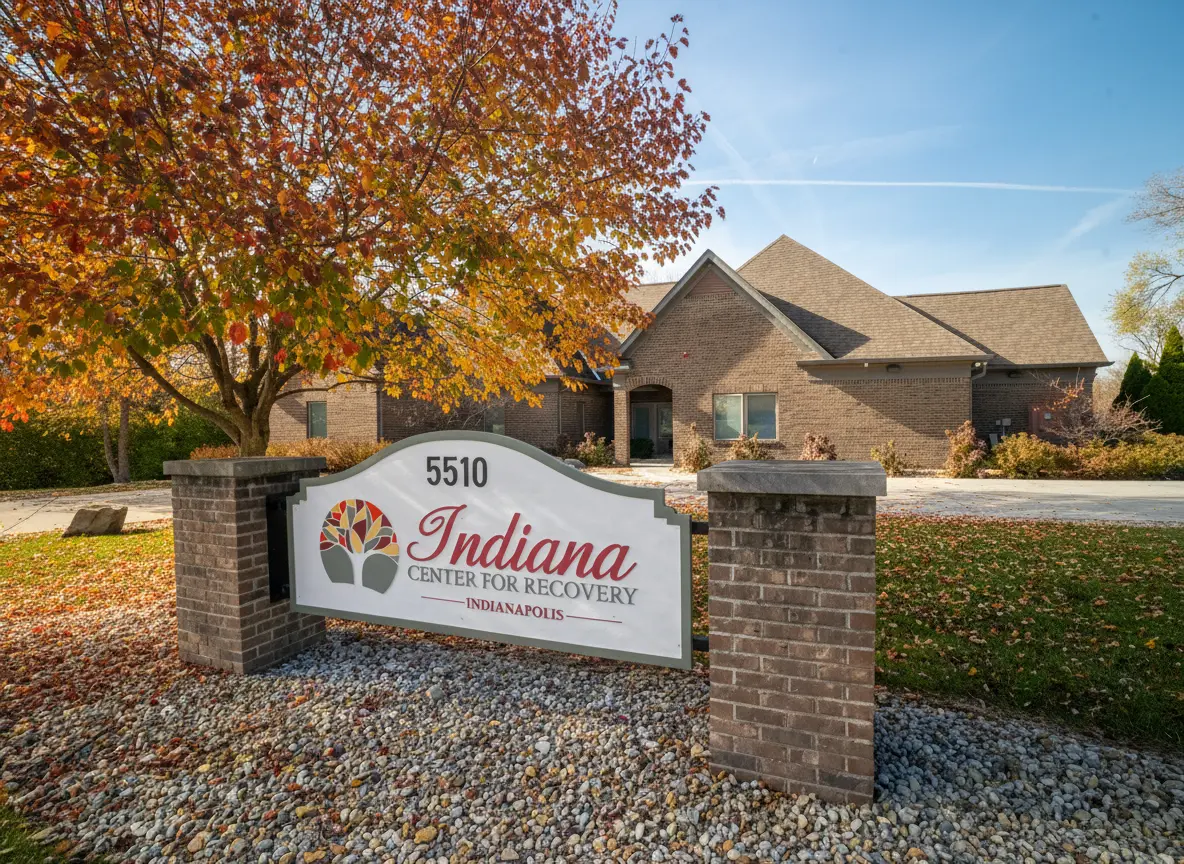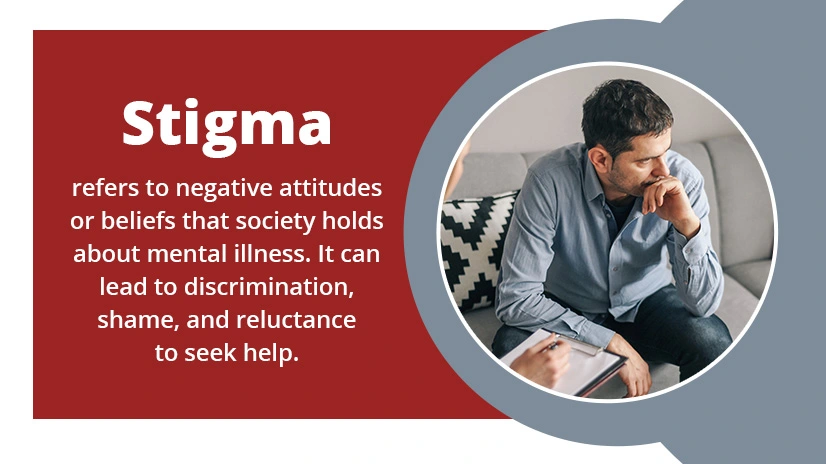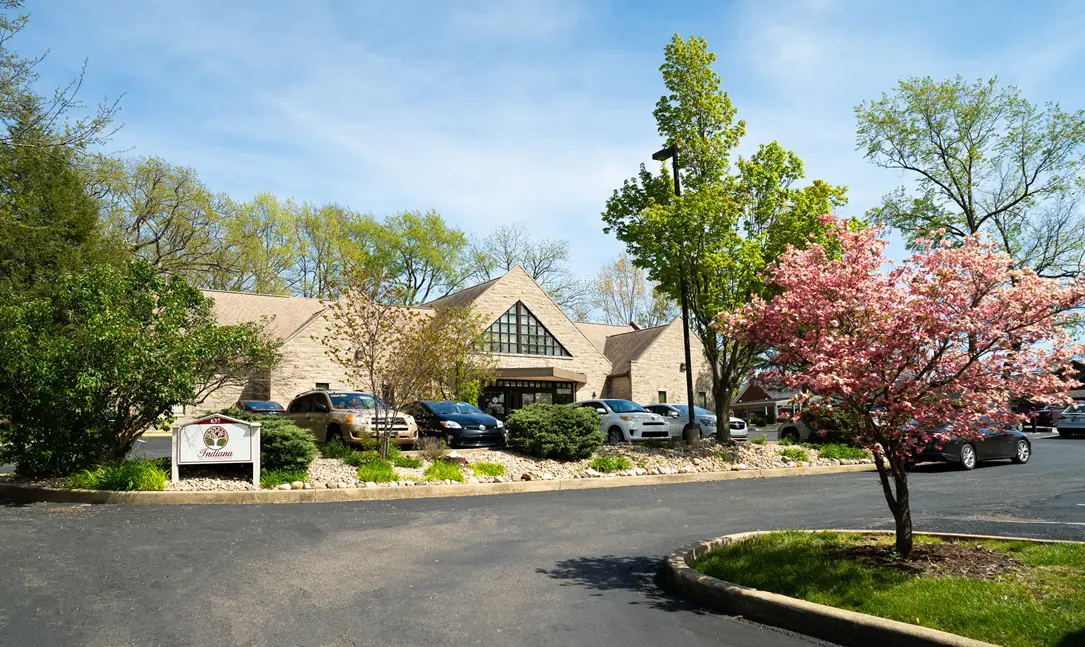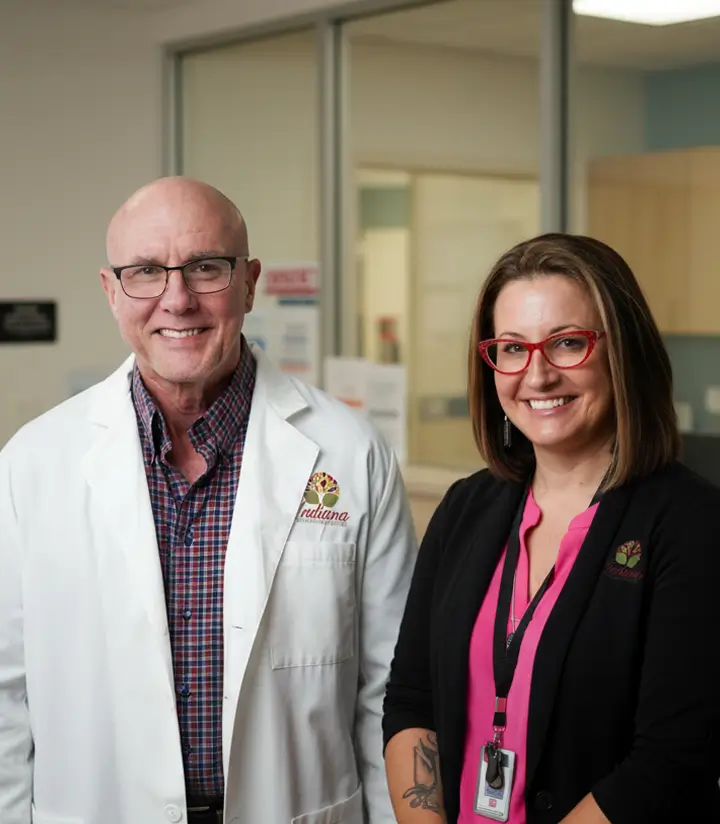
Navigating Relapse After Alcohol Treatment
Embarking on the journey of alcohol treatment marks a courageous step towards a healthier, sober life. However, for many, the path to recovery is not without its challenges, and relapse can be an unexpected detour on this road to sobriety.
Keep reading to discover how to navigate relapse after alcohol treatment, which is crucial for maintaining progress and resilience in the face of setbacks.
Key Takeaways
Alcohol relapse is a recurrence of problematic drinking behavior after a period of abstinence or successful treatment. Read on!
- Alcohol relapse progresses through emotional triggers, mental turmoil, and eventual return to binge drinking habit.
- Alcohol relapse can have negative consequences, undoing the progress made in recovery and restarting the cycle of addiction.
- Preventing alcohol relapse requires vigorous support systems, coping strategies, and a commitment to ongoing self-awareness.
Indiana Center for Recovery is here to help you overcome alcohol addiction and prevent relapse. Call us at (844) 650-0064 to get information.

Understanding The Basics Of Alcohol Relapse
Alcohol relapse occurs when someone who has stopped drinking alcohol starts again. It’s like slipping back into a habit or pattern you were trying to break. Relapse after treatment can happen due to various reasons, such as stress, social pressure, or simply craving alcohol. People in recovery may face triggers that make them want to drink, like being around others who are drinking or feeling overwhelmed by emotions. Recognizing these triggers and learning healthy coping strategies is crucial to avoid relapse.
Understanding that relapse doesn’t mean failure is crucial for those in recovery. It’s a common part of the process for many. What matters is how they respond to it. Seeking support from friends, family, treatment providers, or medical professionals can be helpful during this difficult time. In addition, having a strong support system and engaging in activities that promote physical and emotional well-being can reduce the risk of relapse.
Preventing relapse after treatment requires continuous effort and self-awareness. Developing common relapse prevention strategies to deal with triggers and cravings is essential. This plan may include avoiding stressful situations where alcohol is present, practicing stress-reduction techniques, and finding alternative activities to drinking. By understanding the basics of alcohol relapse and having a plan in place, individuals can better navigate the challenges of recovery and maintain their sobriety.
The Stages Of Alcohol Relapse
Alcohol relapse unfolds in distinct stages, starting with emotional turmoil, progressing to conflicting thoughts, and culminating in the act of drinking. Each stage presents challenges, ultimately influencing the individual’s journey toward sobriety.
Emotional Relapse Stage
During emotional relapse, the person might not actively think about drinking. However, they experience emotional turmoil, such as mood swings, irritability, or withdrawal from others. They may neglect self-care habits and attend fewer support meetings. Coping mechanisms like avoiding emotions or isolating oneself become prevalent, increasing vulnerability to relapse triggers.
Mental Relapse Stage
In the mental relapse stage, the individual struggles with conflicting thoughts about drinking. They may romanticize past drinking experiences or fantasize about moderate consumption. Internal battles between the desire to drink and the commitment to sobriety intensify. Triggers, for example, stress or social situations, heighten the temptation to drink, challenging their resolve to stay sober.
Physical Relapse Stage
During a physical relapse, the person surrenders to the urge to drink, breaking their sobriety. They might rationalize their decision to drink or feel a sense of defeat. Once alcohol consumption begins, it can lead to a cycle of continued drinking and potential consequences. Recovery efforts might restart, emphasizing the importance of seeking support and coping strategies.
Common Triggers Of Alcohol Relapse
Alcohol relapse, the return to drinking after a period of sobriety or professional treatment, can be challenging to overcome. Understanding the common triggers that lead to relapse is crucial for individuals in recovery. By identifying and addressing the triggers, individuals can develop effective strategies to prevent relapse and maintain their commitment to a sober lifestyle.
Personal Triggers
Personal triggers are feelings or thoughts that make someone want to drink alcohol again. Stress from school or family problems can be a personal trigger. Memories of past drinking experiences might also make someone want to drink again. Recognizing these triggers helps people avoid relapse.
Environmental Triggers
Environmental triggers are things in a person’s surroundings that make them want to drink. Places where they used to drink, like a bar or a friend’s house, can trigger the desire to drink again. Seeing alcohol at home or a party can also be an environmental trigger.
Social Triggers
Social triggers involve interactions with other people that make you want to drink. Peer pressure from friends who drink can be a social trigger. Attending events where alcohol is served also triggers the relapse process. Learning to say no to these situations is essential for staying sober.
The Impact Of Relapse On The Individual And Family
Alcoholic relapse after treatment can have profound effects on both the individual and their family. For the individual, relapse often brings feelings of shame, guilt, negative feelings, and disappointment. It can shatter their sense of progress and trigger a cycle of self-doubt. Physically, it can undo the healing achieved during the treatment program and risk overall health. Emotionally, it may lead to increased anxiety and depression, making it harder to seek help again.
For the family, alcohol relapse can be emotionally draining and challenging. They may feel frustration, anger, and concern for their loved one’s well-being. It can strain relationships, erode trust, and lead to a sense of helplessness. Family members may struggle to understand why the relapse occurred and how to support their loved one effectively. The constant worry about their health and future can take a toll on their mental health and stability.
Overall, alcohol relapse after treatment underscores the complexities of addiction recovery. It highlights the need for additional support and understanding from the individual and their family. While relapse can be discouraging, it’s essential to view it as part of the recovery process rather than a failure. With the right resources and encouragement, individuals and their families can navigate this setback and work towards long-term sobriety together.
Preventing Alcohol Relapse
Preventing alcohol relapse is essential for individuals who have undergone treatment for alcohol addiction. It’s a critical part of the recovery plan, ensuring that progress made during treatment is maintained in the long term.
Importance Of Aftercare Post-Treatment
Aftercare is crucial following alcohol treatment to maintain progress. It includes therapy sessions, check-ins, and support groups. These help individuals cope with triggers and stressors effectively. Without aftercare, relapse risk increases significantly, as it provides ongoing support and guidance tailored to an individual’s emotional needs, promoting long-term recovery.
The Role Of Self-Care In Relapse Prevention
Self-care involves a healthy lifestyle and habits like exercise, proper nutrition, and relaxation techniques. These activities boost mood and reduce stress, reducing the urge to drink. Engaging in hobbies and spending time with loved ones also fosters a sense of fulfillment, making it easier to resist alcohol cravings and maintain sobriety.
Support Networks And Sober Communities
Support networks include family, sober friends, and mentors who encourage and assist in staying sober. Sober communities offer a sense of belonging and understanding, reducing feelings of social isolation. Through shared experiences and encouragement, individuals in these communities find strength and motivation to navigate challenges and prevent addiction relapse.
Role Of Therapies In Overcoming Alcohol Relapse
Therapies play a crucial role in helping individuals overcome alcohol relapse. When someone faces alcohol relapse, it means they’ve returned to drinking after a period of abstinence or reduction in alcohol use. This can be due to various risk factors, such as stress or untreated mental health issues. Treatment options like cognitive behavioral therapy (CBT) effectively address these underlying causes and change harmful behaviors. In CBT, individuals learn to recognize and challenge negative thought patterns and develop healthier coping strategies for managing daily life and emotional states.
One of the significant benefits of CBT is its focus on identifying warning signs of relapse and teaching individuals how to respond to these signs in healthy ways. By recognizing signs like increased cravings or mood changes, individuals can take proactive steps to prevent relapse. Additionally, CBT helps individuals cope with withdrawal symptoms and navigate the challenges of maintaining sobriety. Through positive changes in behavior and thought patterns, CBT equips individuals with the skills to address alcohol problems and improve their overall mental health.
Working with a counselor provides an opportunity for individuals to explore underlying issues contributing to alcohol abuse and develop personalized strategies for recovery. It’s essential to understand that overcoming alcohol relapse is a process that requires dedication and support. Medications may also be prescribed to manage withdrawal symptoms. The important thing is to create a supportive environment and encourage individuals to seek help when needed. With the proper guidance and resources, individuals can overcome alcohol relapse and lead healthier, more fulfilling lives.
Frequently Asked Questions (FAQ)
What is an example of a relapse prevention goal?
An example of a relapse prevention goal could be establishing a daily mindfulness practice to manage stress and triggers. This goal could involve dedicating 10-15 minutes each morning to meditation or deep breathing exercises, which can enhance self-awareness and emotional regulation. By consistently practicing mindfulness, individuals can become more adept at recognizing early signs of relapse, such as increased anxiety or cravings, and employ coping strategies effectively.
Additionally, they may develop resilience against relapse triggers by learning to respond to them calmly and consciously rather than reactively. This proactive approach supports long-term recovery and reduces the likelihood of returning to unhealthy behaviors.
What should I do if I experience a relapse after alcohol treatment?
Experiencing a relapse after alcohol treatment can be disheartening, but it’s essential to address it promptly. Firstly, seek support from friends, family, or a therapist who can offer understanding and guidance. Reflect on what triggered the relapse and adjust your coping strategies accordingly. Consider attending support group meetings or returning to professional help to regain stability and prevent further setbacks. Remember, relapse is a common part of recovery for many individuals, and it’s crucial to approach it with self-compassion and a commitment to continuing your journey toward sobriety.
How common is relapse in drug recovery?
Relapse rates in drug recovery vary depending on factors like substance type, duration of addiction, and support systems. Generally, relapse is common, with estimates suggesting that 40-60% of individuals experience it during recovery. It’s considered part of the process rather than a failure. Relapse doesn’t negate progress; instead, it highlights areas needing further attention or adjustment in treatment. Relapse prevention strategies, including therapy, support groups, and lifestyle changes, aim to minimize its occurrence and help individuals navigate challenges effectively on their journey to sustained sobriety.
Relapse? Reset with the Indiana Center for Recovery Team
Relapse is a setback, not a dead end. Our clinicians help you re-frame the warning signs, offer medically supervised alcohol detox when a reset is required, build a new alcohol addiction treatment plan focused on accountability, and pair that with immersive inpatient alcohol rehab plus integrated dual diagnosis treatment so underlying mental health triggers are addressed alongside the physical craving.
Help is available at our alcohol treatment centers across Indiana; call (844) 650-0064 right now to re-engage support and keep your recovery on track.



 100% Confidential
100% Confidential
